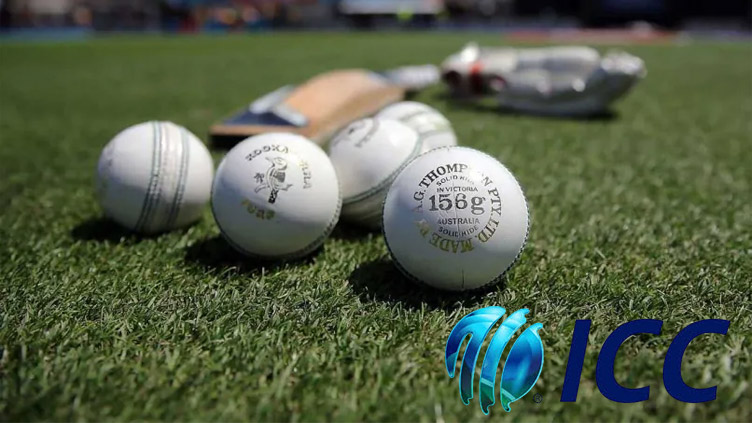ICC considering a change to existing two-ball playing conditions in ODIs

Cricket
Boards will also consider the implementation of a 60-second stop clock in Test cricket
DUBAI (Web Desk) - The ICC is considering a change to the existing two-ball playing conditions in ODIs in a bid to restore some balance between bat and ball in the format. A recommendation was made at the ICC meetings in Harare this week to use only one ball from the 35th over of an innings.
The recommendation was made by the ICC men's cricket committee, headed by Sourav Ganguly, to board chief executives. Each innings will start with two new balls, as is the case now. But in the recommendation, the fielding side will be allowed to select which ball they wish to carry on with after the 34th over, by when both balls will be 17 overs old. The ball that is not chosen will then be kept as the spare ball in case it is needed.
The cricket committee considered making the ball change earlier, after 25 overs. But ESPNcricinfo understands that did not find much favour within the committee, which felt using a ball for 17 overs before deciding which to use was more appropriate. Boards are expected to give their feedback on the tweak by the end of this month. If there is consensus, it will be formalised in the playing conditions most likely at the ICC's annual general meeting in July. Because it is a playing-condition change, it will not need approval by the ICC's board.
The current playing condition was brought in by the ICC in October 2011, having been in place at various points in the past - including, most prominently, at the 1992 World Cup). For a few years until 2011, ODI playing conditions called for a mandatory ball change after the 34th over of an innings, when it would be replaced by a similarly used ball but one that was cleaner and easier to see (the rationale being that balls were becoming increasingly difficult to spot for batters).
Boards will also consider, and provide feedback on, the implementation of a 60-second stop clock in Test cricket. That regulation, to combat slow over rates, has been in place for T20Is and ODIs since last year, where teams running behind time are penalised by bringing one extra fielder within 30-yard circle.
There was also discussion in the committee about switching the Under-19 Men's World Cup, currently played in the 50-over format, to T20. There was no clear consensus around that, however, with no great support. Such a change would, in any case, require formal approval by the ICC board.
Members of the committee also discussed a bonus-points reward in the World Test Championship, though the prevalent view around that was it would be too complicated to implement.


